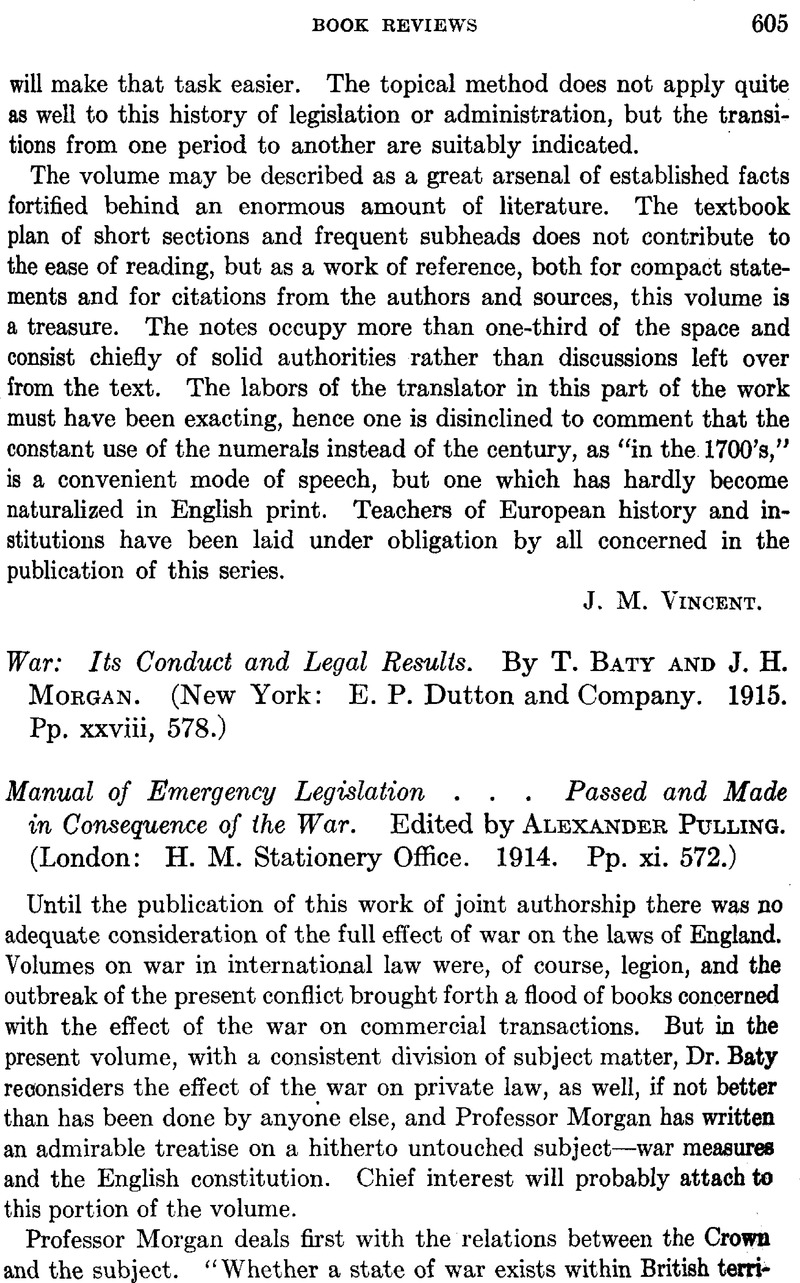No CrossRef data available.
Published online by Cambridge University Press: 02 September 2013

1 It should be added that since Professor Morgan wrote these words Parliament has passed a defence of the realm amendment act (No. 1, March 16), which gives a British citizen the right to demand a jury trial. But this safeguard may be abrogated by royal proclamation in the event of “invasion or other special military emergency arising out of the present war.” Offending neutrals are still punished under military law, although such cases may be transferred to a civil court at the discretion of the prosecuting officer. The first prosecution of a newspaper for the publication of a report “likely to cause disaffection” (the London Times, May 31), did not, therefore, take place before a court martial. This denial of a jury trial from the outbreak of the war until the amendment, called forth very few objections in the press. (See Law Magazine and Review, February, 1915, and Candid Quarterly, February, 1915.) Subsequent amendments to the defence of the realm act, as is well known, give the executive broad powers regarding munitions of war.
Comments
No Comments have been published for this article.